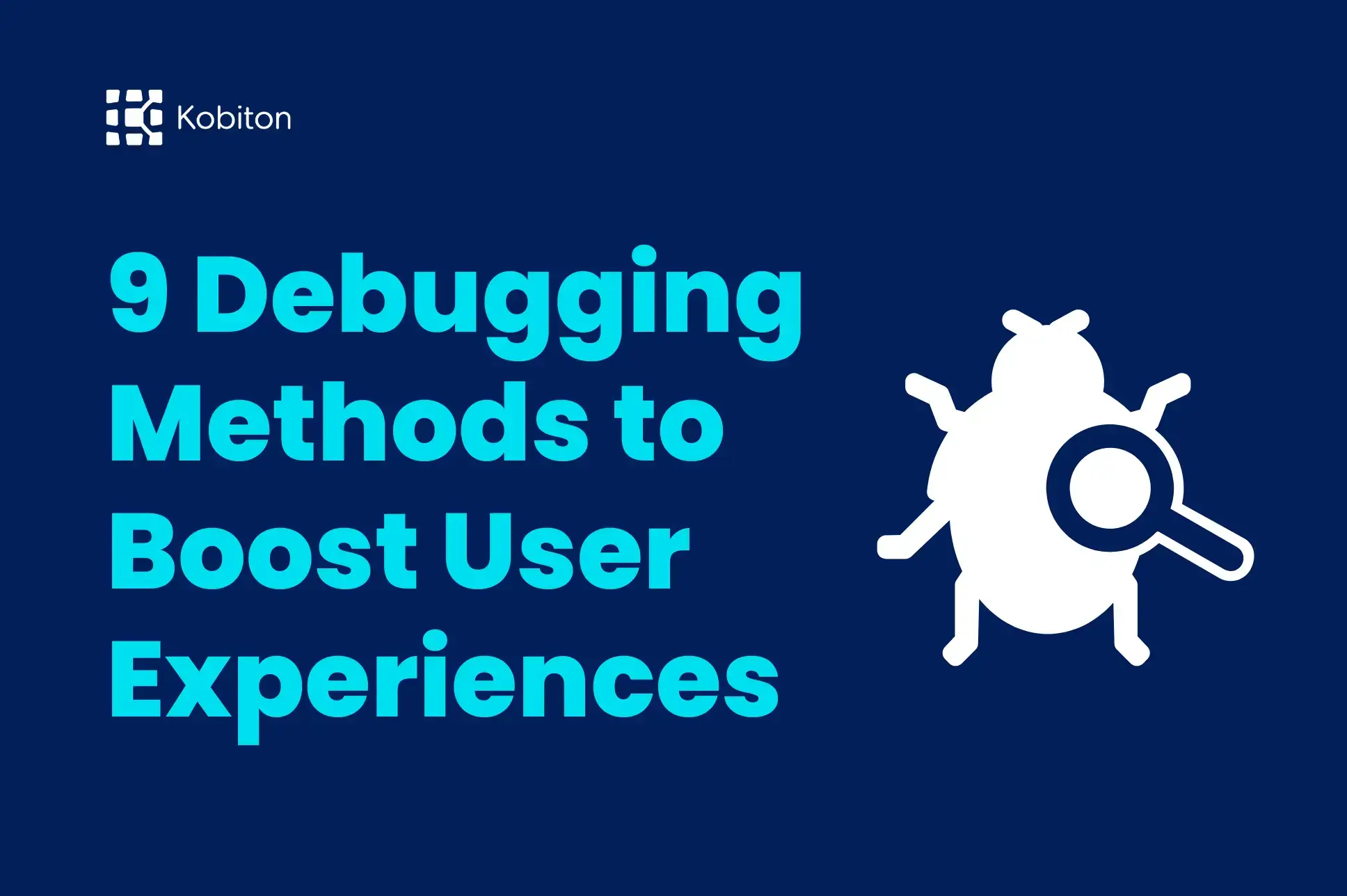
9 Debugging Methods to Boost User Experiences

Cara Suarez
No one really anticipated that Generative Pre-trained Transformer or ChatGPT would have such a huge impact on almost every sphere of the technological landscape. However, what has never been in doubt was the anticipated impact of Artificial intelligence in shaping the future of technology. Today, QAs, developers, and other stakeholders in the software and application development industry finally have a chance to take full advantage of ChatGPT.
As a generative AI, ChatGPT has unique capabilities that can be utilized in code testing in a way that will make testers and QAs’ work easier. One of the greatest challenges with automated testing to date remains the time spent before release. The testing lifecycle has often experienced repeat delays due to bottlenecks in critical procedures such as text generation.
Today, testers and QA experts see the entry of ChatGPT as a timely solution. But can ChatGPT live up to these expectations? This article assesses the role of ChatGPT test automation in shaping the future of mobile app testing.
Anyone who is keen on modern trends in technology has certainly googled ChatGPT. This breakthrough in Large Language Models has taken the world by storm given its current impact and its future prospects. The model is designed to recognize language patterns using machine learning and the vast databases available on Google.
With ChatGPT, it is now possible to get large texts of sequenced information in a grammatically correct and logical way. Interestingly, the same concept of the Large Language Model now also applies to the code application ecosystem.
As the uses of ChatGPT evolve, testers and QAs are also finding new uses for this tool.
A common reason for the delays in test results has always been the tedious process of test case generation. Testing in the past always depended on human beings to undertake language descriptions. Of course, this dependence on testers resulted in errors and time constraints. With ChatGPT test automation, QAs, and testers can now rely fully on AI to generate test cases generated through natural language descriptions.
The best part about using ChatGPT in automation testing is that it can generate as many tests for all possible chatbot testing scenarios. In the past, this was difficult due to various constraints. With this approach, it’s possible for the system to suggest additional requirements that help improve the overall security.
ChatGPT can help testers analyze and generate relevant test data and cases once the desired outcomes are well laid out. The approach significantly improves the testing speeds and release.
Even then, a constant concern for ChatGPT users currently is the risk of errors. Generated results from AI may require additional checks from human standards to ensure the elimination of any errors in the content.
The modern developer is highly productivity-oriented. Given the time and effort required, they don’t want to spend significant time trying to refactor codes. With ChatGPT in automation testing, developers can now add comments and refactor codes quickly. Over time, developers have also confirmed that AI produces cleaner, more maintainable codes. This means there can be better collaboration among developers, testers, and QAs due to the extra time available to counter-check and review such codes.
Today, ChatGPT can quickly assist developers and testers in refactoring, renaming, or modifying codes based on the provided instructions. Further, unlike previous bots, which faced problems when dealing with complex requirements, ChatGPT continues to show incredible ease when undertaking most of the writing and refactoring procedures.
Developing best practices is critical in the process of app testing. These best practices act as a guide for all subsequent procedures. Even then, there is so much involved in the process of mobile testing that it may be tempting to overlook the process of identifying best practices.
The AI helps developers generate different chatbot testing scenarios and develop best practices in the testing process to suit the different scenarios. Normally, testers apply different chatbot testing scenarios and also adhere to varying best practices for different architectural data models.
The fact that ChatGPT is a product of machine learning means that it can easily regenerate these best practices in cases where the scenarios are similar. This helps save time and improves the overall testing landscape.
The fact that ChatGPT can write text cases and explain the test results is mind boggling. Testers can simply post the error messages received when running tests. The AI is tailored to assess such results and provide responses for each test.
Another major win for testers is the conversation format inherent in the platform. It’s possible for developers, QAs, and testers to ask the AI follow-up questions regarding the errors found in the testing process.
Over time developers have also noted that ChatGPT can provide feedback about potential bugs in the various coding procedures. With such a tool, it’s possible to achieve better quality and timely tests at all times.
It can be such a daunting task trying to compile test summaries for thousands of tests using manual processes. The risk of errors and inaccuracies can affect the overall quality of the tests. However, with ChatGPT, testers can now obtain test summaries with incredible ease.
ChatGPT summarizes the content in a narrative format that makes it easy for any audience to follow and utilize. Whether the tests are technical or non-technical the AI will still provide useful summaries.
At the end of every testing process, the testers and QAs have an obligation to provide a comprehensive report that details the scenarios and results. But with the entry, you don’t need to worry about generating large amounts of reports, which could be unstructured information. With ChatGPT, you can now generate report summaries with ease and speed.
Now that we have seen some of the ways through which ChatGPT can help in testing, the next part should be the benefits that will accrue from the use of ChatGPT in the process of testing.
The need to introduce AI in the entire process of mobile app testing is to meet specific inherent gaps in human beings. One such gap is the ability to work on bulk processes while saving time. ChatGPT has saved significant time over the last six months since its launch.
Today, testers can conduct multiple tests and get a full summary for each report I record time. Testers can use the extra time to plan and execute more test cases. Depending on the project’s complexity, it may take a few hours to conduct such tests.
Hiring testers, QAs, and other personnel during testing can be strenuous cost-wise. In some instances, tests have returned false results due to limited work capacity. Rather than waste money trying to hire more staff to do the same repetitive task, ChatGPT works ten times better than the average testers. This means that companies seeking to use AI will notice significant cuts in current budgets.
ChatGPT makes it easy for developers, QAs, and testers to quickly undertake bulk testing for various scenarios. The fact that the AI can generate codes, write and reprint codes means that it can be a valuable source for bulk test cases. The best thing about AI is that it can achieve the same results for bulk orders as for one order.
· Shorter Release Time
The test process is unpredictable when it is entirely human-led. The turnaround time around time for delivery has remained a matter of concern over the year due to the long wait time noted. However, ChatGPT is a game changer. Now, you can enjoy a shorter release time with greater flexibility.
It’s important to note that everything has the other side of the coin.
While less significant than human error, ChatGPT may have notable errors, mainly due to originality. In some cases, it’s clear that the AI cannot present a clear and concise line of thought. It may take a keen review of the entire text for you to remove any underlying ambiguities.
The ChatGPT is still new, and the available versions are on trial. This raises questions about the future of AI, the possible cost of the other version, and how well testers embrace it.
As a multiplicative AI, ChatGPT has unique abilities that can be utilized in code testing to make testers and QAs’ work easier. One of the extreme trials with automated testing remains to turn around time spent before release. The testing lifecycle has often experienced repeat delays due to tailbacks in critical procedures such as text generation.
With ChatGPT automation testing, such concerns are behind us as we look into the future with great optimism that AI will drive the industry. Kobiton is among the few platforms that now allow for integrating this technology into most routine processes.